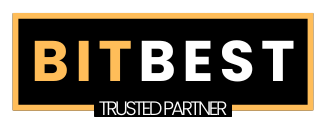The Role of Blockchain Technology in Modern Startups
Blockchain technology has revolutionized various industries, and startups are at the forefront of this digital transformation. With its decentralized and transparent nature, blockchain is reshaping business models, enhancing security, and optimizing operations. Entrepreneurs are leveraging this technology to create innovative solutions that disrupt traditional industries. This article explores how blockchain is impacting modern startups, the benefits it offers, and the challenges associated with its adoption.
Understanding Blockchain Technology
At its core, blockchain is a distributed ledger technology that records transactions across multiple nodes. These records are immutable, meaning they cannot be altered, which enhances transparency and security. Unlike centralized systems, blockchain operates on a decentralized network, eliminating the need for intermediaries and reducing transaction costs.
Key Features of Blockchain:
- Decentralization: No central authority controls the data.
- Transparency: All transactions are visible to network participants.
- Immutability: Once recorded, data cannot be modified.
- Security: Cryptographic algorithms protect information from cyber threats.
- Smart Contracts: Self-executing contracts that automate processes without intermediaries.
How Blockchain Benefits Startups
Blockchain technology provides several advantages for startups, from enhancing security to reducing operational costs. Here’s how it empowers entrepreneurs:
1. Enhanced Security and Trust
Startups dealing with sensitive customer data can leverage blockchain’s security features to prevent fraud and data breaches. Cryptographic encryption ensures that data remains protected, and transparency fosters trust between businesses and customers.
2. Reduced Transaction Costs
Traditional financial systems rely on intermediaries, leading to high transaction fees. Blockchain eliminates these intermediaries, allowing startups to process transactions faster and at a lower cost. This is particularly beneficial for fintech startups handling cross-border payments.
3. Improved Supply Chain Management
Startups in logistics and e-commerce can use blockchain to enhance supply chain transparency. By tracking goods from production to delivery, businesses can reduce fraud, minimize errors, and ensure product authenticity.
4. Decentralized Finance (DeFi) Opportunities
Startups in the finance sector can leverage blockchain for decentralized finance (DeFi) applications. DeFi eliminates traditional banking barriers, enabling peer-to-peer lending, automated trading, and smart contract-based transactions without intermediaries.
5. Tokenization and Fundraising
Blockchain has revolutionized fundraising through Initial Coin Offerings (ICOs) and Security Token Offerings (STOs). Startups can tokenize assets, allowing investors to buy digital shares in their company, making fundraising more accessible and efficient.
Real-World Applications of Blockchain in Startups
1. Healthcare Startups
Blockchain enhances patient data security, ensuring medical records remain tamper-proof and accessible only to authorized personnel. It also facilitates secure data sharing between healthcare providers.
2. Legal Tech and Smart Contracts
Legal startups can use smart contracts to automate agreements, reducing paperwork and legal fees. Blockchain-powered legal solutions ensure contract enforcement without intermediaries.
3. Gaming and NFTs
Gaming startups are incorporating blockchain to create non-fungible tokens (NFTs) that offer players true ownership of digital assets. Blockchain-powered games allow users to buy, sell, and trade in-game assets securely.
4. Real Estate Transactions
Blockchain simplifies real estate transactions by reducing paperwork, enhancing transparency, and preventing fraud. Smart contracts enable seamless property transfers without intermediaries.
Challenges of Blockchain Adoption in Startups
While blockchain offers numerous advantages, startups face several challenges when integrating this technology:
1. Regulatory Uncertainty
Different countries have varying regulations regarding blockchain and cryptocurrencies. Startups must navigate these legal complexities to ensure compliance.
2. Scalability Issues
Blockchain networks, especially public ones, face scalability limitations that can slow down transaction processing. Startups need to explore solutions such as layer-2 scaling or private blockchains.
3. High Initial Implementation Costs
Integrating blockchain requires significant investment in infrastructure, development, and security protocols. Startups with limited resources may find it challenging to adopt blockchain technology.
4. Limited Blockchain Expertise
Finding skilled blockchain developers can be difficult, as the technology is still relatively new. Startups must invest in training or hiring experts to implement blockchain solutions effectively.
How to Choose the Right Blockchain for Your Startup
Not all blockchain platforms are the same. Choosing the right one depends on your startup’s needs and goals. Here are some factors to consider:
- Public vs. Private Blockchain: Public blockchains (e.g., Ethereum, Bitcoin) offer decentralization but may have scalability issues. Private blockchains (e.g., Hyperledger, Corda) provide control but limit transparency.
- Smart Contract Capabilities: Platforms like Ethereum and Binance Smart Chain support smart contracts, ideal for fintech and DeFi startups.
- Transaction Speed and Costs: Startups should assess the blockchain’s transaction processing speed and associated costs.
- Security Features: Look for blockchains with robust security protocols to prevent cyber threats.
The Future of Blockchain in Startups
Blockchain technology is evolving rapidly, and its adoption in startups will continue to grow. Emerging trends such as decentralized autonomous organizations (DAOs), improved scalability solutions, and integration with artificial intelligence (AI) will further enhance blockchain’s potential.
Predictions for Blockchain in Startups:
- Increased mainstream adoption across industries
- More regulatory clarity leading to innovation
- Enhanced blockchain interoperability for seamless integrations
- Growing use of AI-powered smart contracts
Conclusion
Blockchain technology is revolutionizing the startup ecosystem by offering security, transparency, and cost-effective solutions. Despite challenges such as regulatory uncertainty and scalability, the benefits far outweigh the risks. Startups that embrace blockchain early will gain a competitive edge in the evolving digital economy.
Are you ready to integrate blockchain into your startup? Explore blockchain solutions today and take your business to the next level!


 Bitcoin
Bitcoin  Ethereum
Ethereum  Tether
Tether  Solana
Solana  USDC
USDC  Lido Staked Ether
Lido Staked Ether  Dogecoin
Dogecoin  TRON
TRON  Cardano
Cardano  Bitcoin Cash
Bitcoin Cash  Toncoin
Toncoin